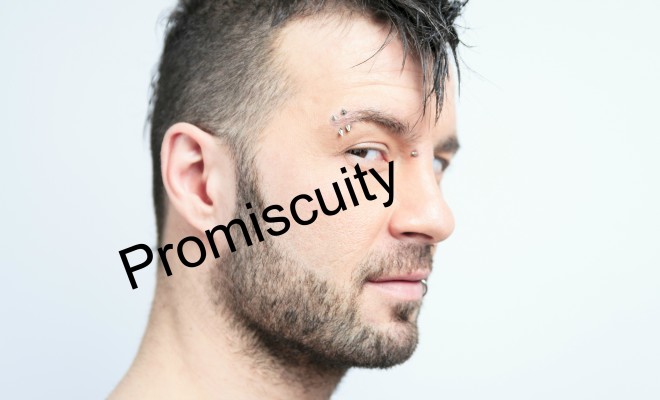
Promiscuity? (Part I in a Series)
Promiscuity? (Part I in a Series)
by Raymond Rigoglioso
Over dinner this week, a friend of mine acknowledged to me that he had trouble getting through the chapter on sexual leadership in Gay Men and The New Way Forward. “I had to keep stopping,” he said, “because my judgments kept coming up.” For him, these judgments focused on the prevalence of non-monogamy among long-term male couples.
“You know, judgments of others are always judgments of self,” I said. “Yes, I understand that,” he replied.
Then he asked me, “Have you done personal work around this?”
“Absolutely. It was the topic of my therapy for a long time,” I responded. “I couldn’t have written that chapter—nor could I be doing the Gay Men of Wisdom work if I hadn’t worked through my sexual shame.”
I know from personal experience how closely judgments of others’ sexuality are tied to one’s sexual shame. In much of my 20s and early 30s, I silently judged gay men for the types and quantity of sex “they” had. It took me years to understand how feelings about my own sexual desires and these judgments were one and the same. When I stopped seeking approval from society about what I like and how I like it, my judgments of others faded. That’s when I understood the connection.
This brings me to “promiscuity.” I have a big beef with this word. There’s no more succinct shorthand for this pairing of judgments. “Promiscuity” is when someone has sex with more people than you think he should have. It’s always relative to the user’s point of view.
Some people—some gay men included—seem to derive satisfaction from labeling gay men “promiscuous.” In doing so, the user conveys there is a “right” and “wrong” way to express sexuality, and that other people should have sex based on his (or society’s) limits. The user rarely understands that he is sending himself the same message: he is shaming, limiting, and castigating himself about his own sexual desire. He uses the power that shaming others gives him to feel better about himself, but doesn’t understand that he injures himself in the process.
We can judge any form of consensual human interaction and shame the person for engaging in it. For instance, would we label a man who has 10 business lunches in a given month “promiscuous?” Is the waitress who serves thousands of customers in her career “promiscuous” because of the extensive human contact she’s had?
The notion is absurd. Consensual human interactions are just that–whether we’re having lunch, serving a meal, or having sex. We’re being human with each other in different ways. The fact that we’re shaming someone for doing it tells us more about ourselves than anything else.
Sex is our life force energy. When we tap into it, we open ourselves to love and our inherent creativity. When we can fully express our sexuality, we can fully express our creativity. We harness our personal power and control our destiny.
The man who is sexually free is free in all areas of his life. The man who shames others sexually limits his own potential.
Let’s consign “promiscuous” to the history books.
About the Author:
Ray is the writer of Gay Men and The New Way Forward
He is the Founder of Gay Men of Wisdom and can be found on Gay Men of Wisdom.





4 Comments